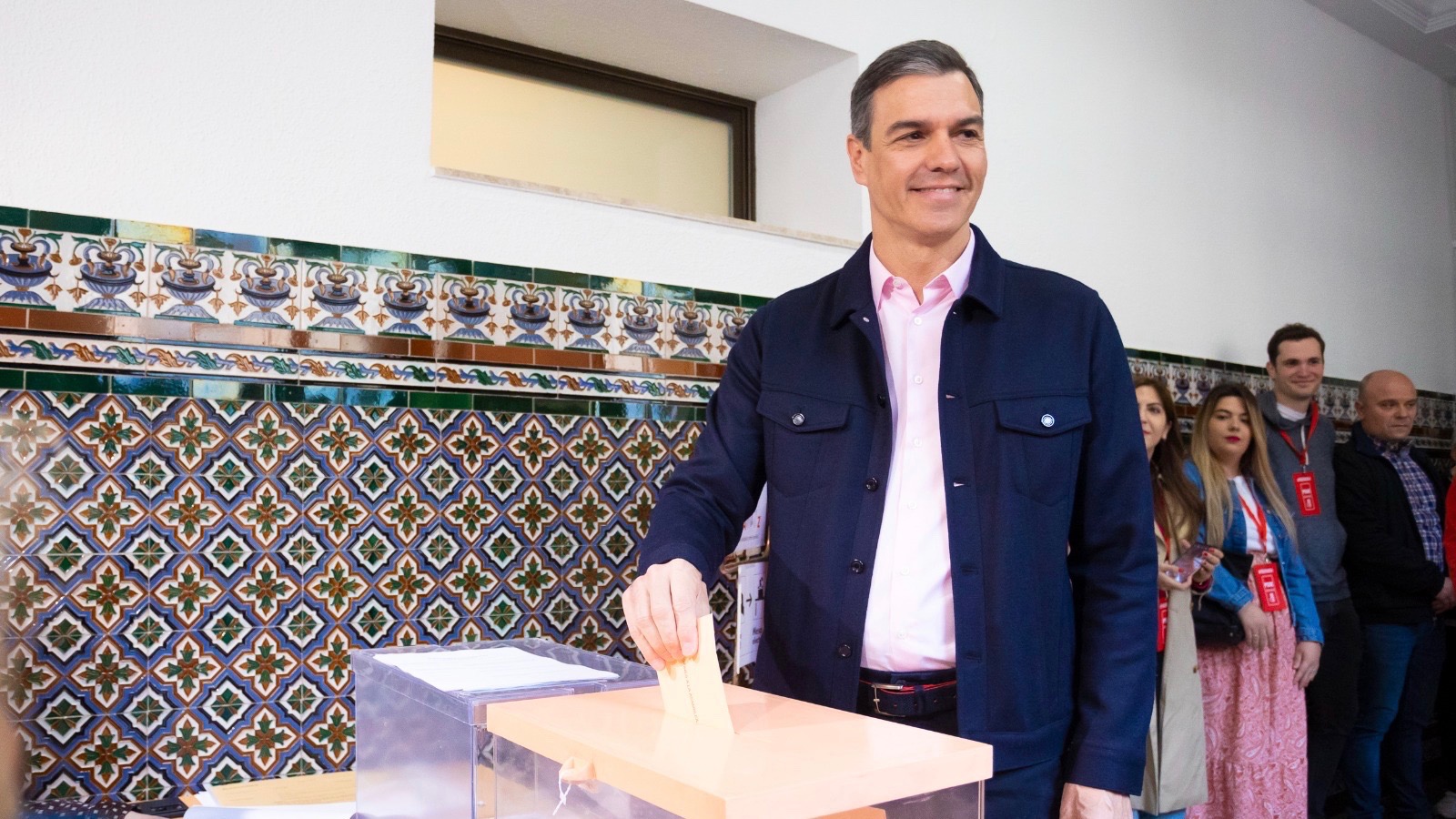On Monday, May 29, Spanish Prime Minister Pedro Sanchez called for snap general elections to be held on July 23. The announcement was made following the defeat of his party, the Spanish Socialist Workers’ Party (PSOE), and its coalition partners in the incumbent government in the regional and local body polls held on Sunday. The overall voter turnout on Sunday was 63.89%, 1.3% lower than the 2019 polls.
Elections were held to elect 12 regional autonomous assemblies (out of 17), over 8,000 municipal councils, and 38 provincial deputations. The conservative People’s Party (PP) led by Alberto Núñez Feijóo took the lead at the local level with 31.5% (8.8%+) votes, bypassing the PSOE which only managed to retain 28.1% (1.3%-) votes.
According to the latest reports, PSOE has lost the regions of Valencia, Aragon, La Rioja, Extremadura, and Balearic Islands to the PP, which has emerged first in eight out of the 12 regions, in the autonomous cities of Ceuta and Melilla, and in 30 out of 52 provincial capitals.
Left-wing populists from Podemos and leftists from the United Left (IU), coalition partners in Sanchez’s government, also faced significant setbacks in the assemblies of many of the autonomous regions.
Meanwhile, the far-right Vox party tripled the number of its local bodies representatives, securing 7.2% (3,5%+) votes. The fate of the many regional assemblies and municipal councils will now depend on the support of the Vox party to the PP.
Liberal political party Citizens (Cs), which had obtained 9.2% votes in the 2019 local polls, is said to be the major loser in these elections as it failed to register any significant victories.
The PP list, headed by incumbent President of the Community of Madrid Isabel Diaz Ayuso, won big in the Assembly of the Community of Madrid. In the city council of Barcelona, capital of the Catalan region, the party of incumbent mayor Ada Colau, Barcelona En Comú, slid to the third position with nine seats, while the center-right, pro-independence Trias per Barcelona led by Xavier Trias emerged first with 11 seats. The Catalan Socialists (PSC) won 10 seats.
The polls have been regarded as a trial run for the general elections originally scheduled for December 2023. Though, the defeat of the PSOE and its coalition partners from Podemos and United Left (IU) has led Prime Minister Sanchez to announce an earlier date for the general elections. The PP seems enthusiastic about defeating the PSOE-led coalition, while Podemos has called for more unity among leftist groups.
Following the declaration of results, Labor Minister Yolanda Díaz, ex-leader of the United-Left (IU) who formed the Sumar Coalition in 2022 to contest the general elections, stated that “the message received last night was very clear: you have to do things differently. No distractions. From this moment we’re working to win next July 23rd. I accept the challenge.”
The problem of racism was a key issue highlighted in the heated election campaign, especially after the racist abuses faced by Brazilian player Vinícius Junior in the Spanish football club Real Madrid during a football match on May 21.
Spain which was hit hard by the economic consequences of the COVID-19 crisis, is also facing the impacts of the ongoing war in Ukraine in the form of inflation, similar to other European countries. Progressive organizations, including trade unions across several sectors, women’s rights group, immigrant rights groups, and others, have been protesting for some time against the austerity-ridden, anti-worker and misogynist policies of the conservative-run regional governments in Madrid, Castilla y Leon, among other places. The country’s participation in NATO-led maneuvers in the region, amid the escalation in warmongering by Western powers regarding Ukraine, has also been a point of contention for the population.
Enrique Santiago from the leadership of the Communist Party of Spain (PCE) and the United Left (IU) stated, “the right-wing, reactionary and the anti-democratic forces have advanced and we need to reflect to push back that wave,” and “ensure a government that maintains and expands social achievements for working families in our country. We are convinced that we will curb the reactionary wave with hope, proposals, and mobilization.”





